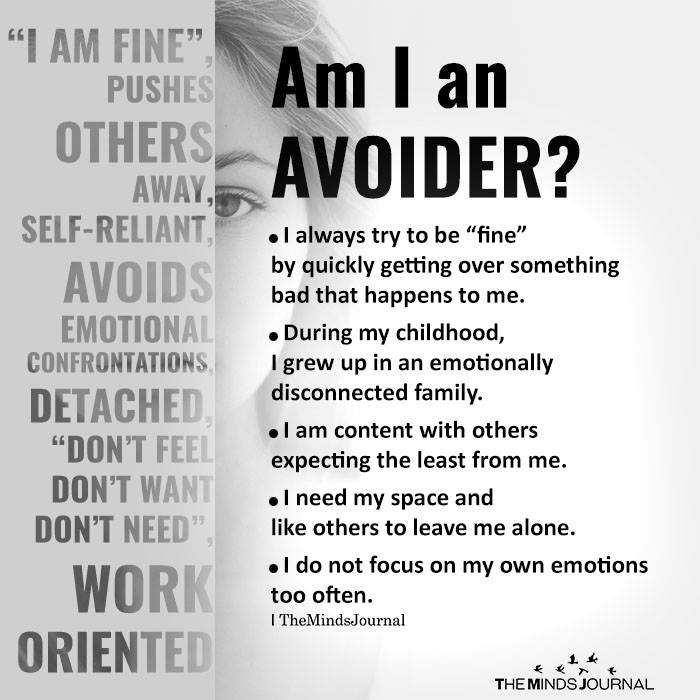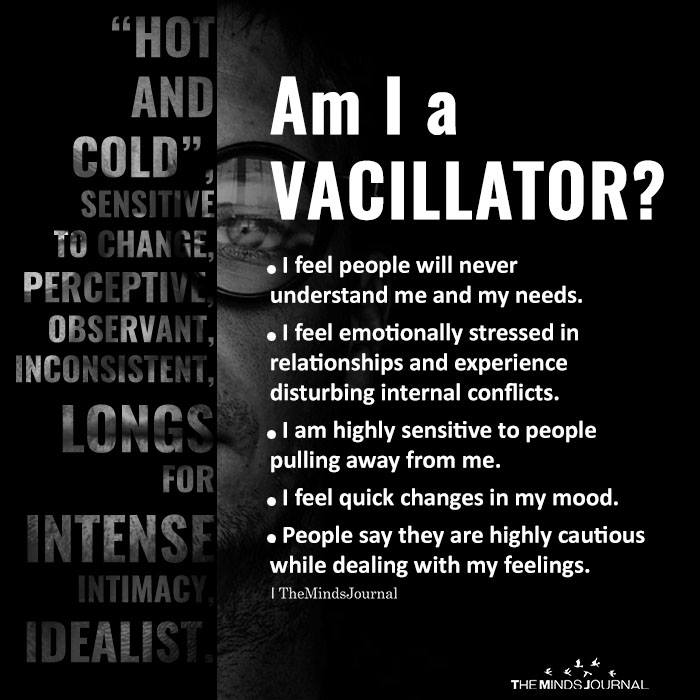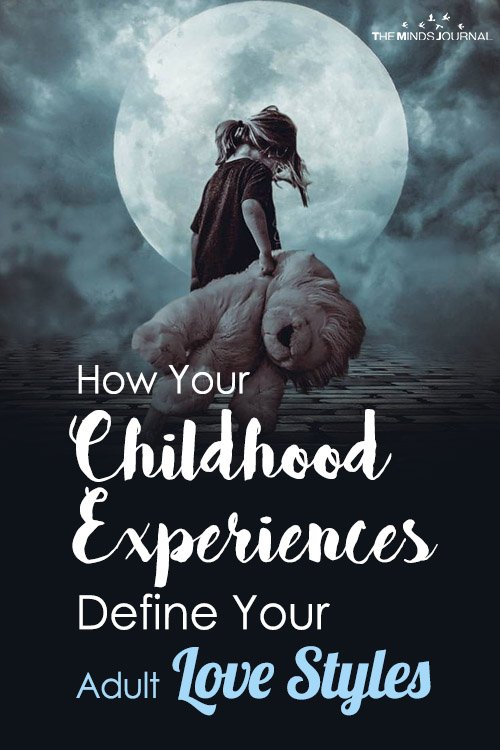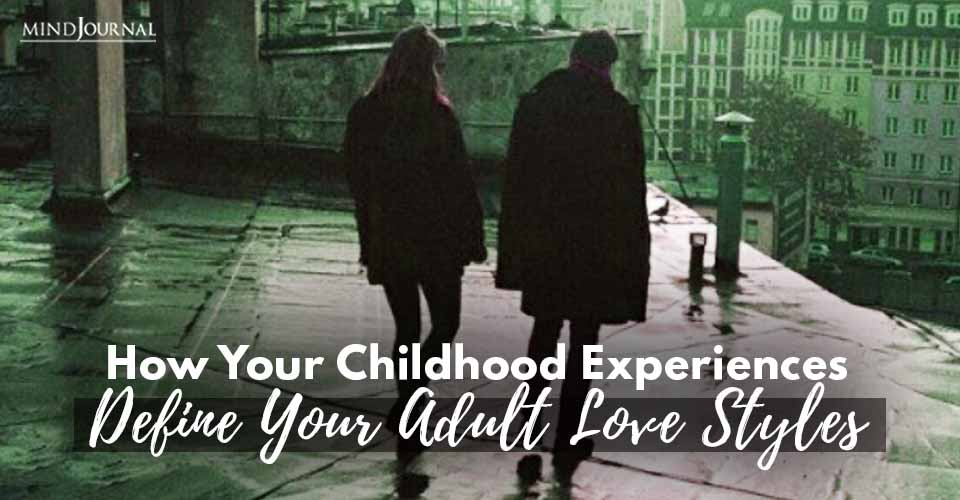Your childhood experiences and the treatment you got from your parents can hugely define and dictate your adult love styles.
We all are the outcome of how we were molded in our childhood.
“Unexpressed emotions will never die. They are buried alive and will come forth later in uglier ways.” ―
As adults, we often think our life is in our own hands. That we are living exactly how we have always wanted to and are going to chase our dreams in the process too.
Many of us, however, forget that the childhood we lived may still be lurking in the shadows, behind the guise of a fully functioning adult.
Why would that happen, you would ask?
The simple reason behind this phenomenon is the fact that childhood is our earliest state of development. While it has many stages incorporated into it, and at each stage, our life may have seemed different from the others, the way we absorb information and process the environment around us, have their first roots in childhood.
This brings us to the concept of “love styles” created by Kay and Milan Yerkovich, family therapist, and counselor respectively, in order to magnify the view of our childhood love patterns in context to our current adulthood.
The Yerkovichs found the basis of their five “love styles” in the critically famous attachment theory exploring the nuances of how an adult received and experienced love as a child and the impact of the same.
As you might already know, attachment theory that was worked on by psychologist Mary Ainsworth talks about different forms of attachment styles.
They are:
- Insecure Avoidant attachment style,
- Secure attachment style and
- Insecure Ambivalent or Resistant attachment style
So what are these “love styles” and which one do you feel most resonate with you?
Here Is How Your Childhood Experiences Define Your Adult Love Styles
1. The Pleaser

If you’re a pleaser, your style would be to stay as a non-confrontational and “sweet” partner, someone who is continually adjusting and as the name suggests, is keen to please everyone involved.
This style of course is an outcome of certain conditioning that you may have had gone through in early infancy and childhood. Almost invariably, pleasers grow up among parental distress where parents are either over-critical or driven by anxiety or stress. There’s also a likelihood that they grow up among bullying and domineering siblings.
Whatever the stimuli is, the pleaser looks at making themselves small in order to survive and “give” to everyone around.
During placeless times (which are inevitable given the nature of life), the pleaser becomes flush with anxiety and then work towards getting rid of the unpleasantness.
A challenge for a pleaser is to be able to meet their own authenticity and acknowledge real problems exactly for what they are.
Related: 9 Important Reminders For A People Pleaser and How To Finally Say ‘No’
2. The Avoider

An insecure attachment style with caregivers leads the avoider to their “love style”.
As in their original childhood conditioning, this kind of a lover forms the pattern of relationships that don’t go too deep. They typically have commitment issues and for some even admitting that trust takes time and often difficult, becomes a difficult admission.
The Avoider “love style” is also a lot about the intellectualization of life itself and might be a bad fit for any situation that demands high emotional intelligence.
If you resonate with this style yourself or know someone who does, please know that the real reason behind this often is a lack of emotional access during childhood, where parents may have been avoiders promoting an avoidant style in the child quite unconsciously.
This may have made someone who follows this style independently, with a real need to be by themselves and not giving or seeking physical touch or comfort.
3. The Vacillator

Unpredictability is the theme behind the vacillator style, where the latter usually has a parent that they don’t know where they stand with. In time, the parent does come around and becomes more ready to be affectionate. However, by that point, the child gives up, tired of waiting, and may suddenly experience a surge of anger at the parent’s changed behavior.
This kind of a developmental arc makes the inner lives of vacillators challenging and unsafe.
This may predispose them to external conflicts as well and sometimes, they wouldn’t even know why they are sabotaging a conversation or a relationship.
The biggest pain point of a vacillator is the feeling that no one really gets them for who they are. This relates directly back to their early experience of needing emotional connection and not finding any. People in relationship with vacillators may feel like they can’t be themselves, lest trouble breaks out.
Related: How Your Attachment Style Affects Your Relationship
4. The Victim

In a wildly chaotic home environment, filled with abuse, neglect, and lack of communication, the first roots if the victim’s love style is born.
Anyone whose patterns in relationship resemble that of the victim would fall into equations of power struggle. Victims tend to get attracted and also attract controlling people, because of their own lack of self-worth and an inability to negotiate those feelings.
The consistent theme for the victim is to gulp down their own feelings and keep the peace, while getting charred by internalized anger.
People who get drawn to victims initially are charmed by the way the latter flow, but in time realize that this is more because of innate helplessness than agreement.
This love style can create irritation and disgust in the partner, triggered primarily by the streak of helplessness (which can then remind them of their own childhood, albeit unconsciously).
5. The Controller

An antithesis of the victim is the controller. If the victim is always about giving up their own power, the controller is about taking it, whatever the cost.
This love style, like that of the victim, also comes ridden with conflict and chaos and its roots lie in a past where the child had to buckle up. This is in conflict with the basic need of a child, which is to feel safe and loved.
Controllers find it easier to leave their feelings aside and show up as “strong” people. They are resistant to showing themselves as vulnerable people, for the simple reason that they equate vulnerability with weakness.
In the long run, the pattern of toughening up as a child reveals itself as a constant power play with the partner, where the latter may often end up feeling abused.
Related: 4 Steps to Recovery After Childhood Emotional Neglect
Being aware of one’s own love style can be revealing to the least.
It is not easy to make changes in adult relationships. Hopefully, when you have a sense of where your current struggles might have their seeds, you’ll be in a position to do something about it.
Working by yourself and working alongside a partner (who is all probability has a different love style) are both options you can explore.











Leave a Reply